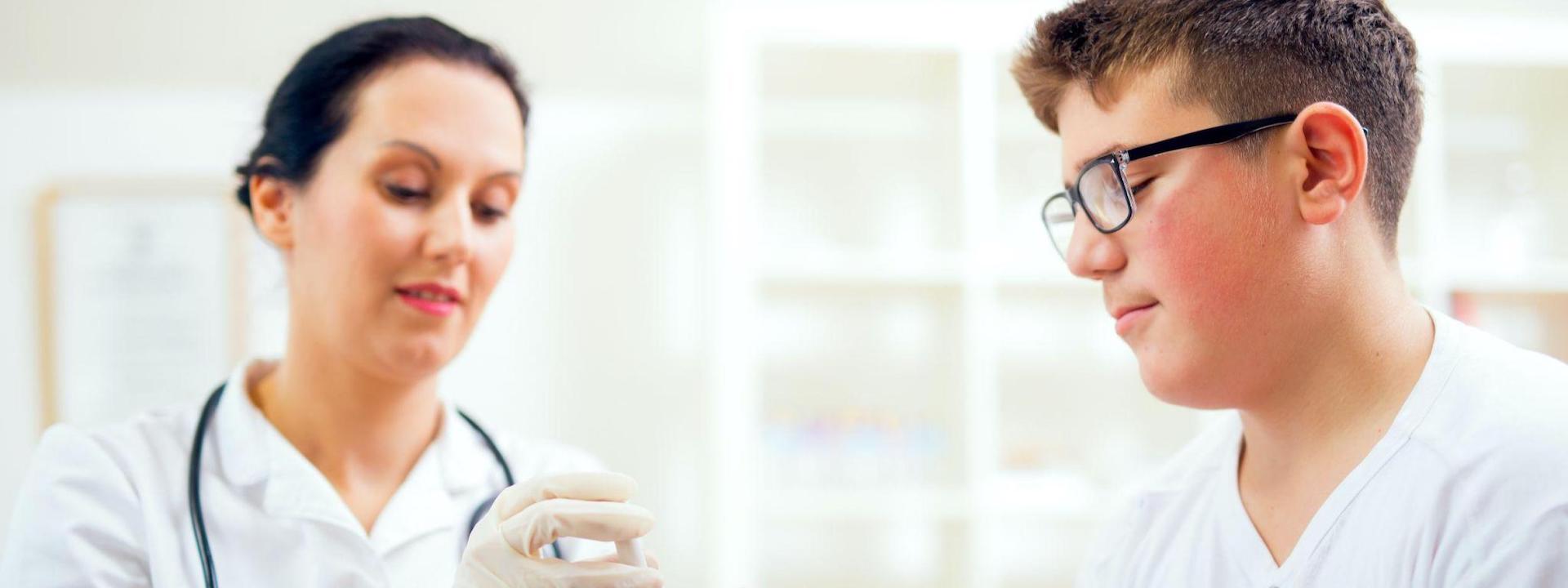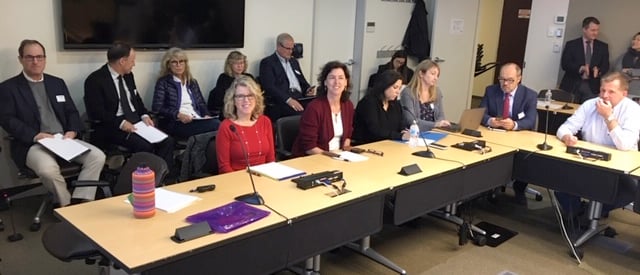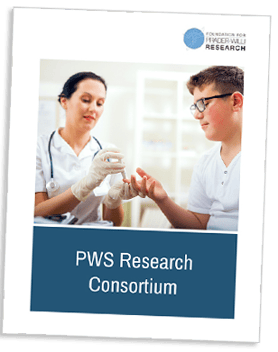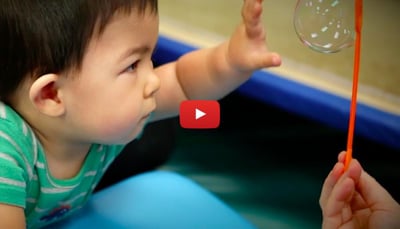
The International Consortium to Advance Clinical Trials for Prader-Willi Syndrome (also called the Prader-Willi Syndrome Clinical Trial Consortium, or PWS-CTC) was established in 2015. The PWS-CTC is a pre-competitive, collaborative consortium of stakeholders from pharmaceutical industries, academia, and patient organizations, established to facilitate the development and approval of safe and effective therapies for PWS. The PWS-CTC addresses unmet scientific, technical, clinical, and regulatory needs for PWS clinical trials. Primary objectives of the PWS-CTC include advancing the understanding of PWS natural history to support therapeutic development, developing patient-centric outcome measures to assess treatment efficacy, and employing rigorous methods to incorporate the patient and caregiver perspectives into the benefit/risk assessment of new treatments.
The PWS-CTC steering committee is composed of an equal representation of patient advocacy groups, academics and industry, and working groups composed of experts from academia and patient advocacy groups. The full PWS-CTC meets annually to discuss the ongoing needs of PWS clinical trials, whereas working groups meet as needed to advance specific projects.

PWS-CTC at a Critical Path Innovation Meeting at the FDA
The PWS-CTC has been joined by:
Aardvark Therapeutics, Acadia Pharmaceuticals, ConSynance Therapeutics, Harmony Biosciences, ot4b, Gedeon Richter, Soleno Therapeutics, Tonix Pharmaceuticals, the Foundation for Prader-Willi Research (FPWR), the International Prader-Willi Syndrome Organization (IPWSO), the Prader-Willi Syndrome Association (USA), The Prader-Willi Research Foundation of Australia (PWRFA), and researchers Drs. E. Dykens (Vanderbilt University), S. Einfeld (University of Sydney), L. Rice (University of Sydney), E. Roof (Vanderbilt University), P. Salehi (University of WA, Seattle Children’s Hospital), A. Caixas (Autonomous University of Barcelona), C. Höybye (Karolinska Institute), A. Dimitropoulos (Case Western Reserve Univ.), and J. Miller (Florida University).

The PWS-CTC has generated a number of publications and videos to support the advancement of PWS clinical trials:
Tips for Conducting a Successful Clinical Trial in Prader-Willi Syndrome Download >>
Improving the PWS Clinical Trial Experience Report: Results from a Caregiver Survey of PWS Clinical Trial Participant Experiences
Download the report >>
Improving the PWS Clinical Trial Experience Report: Recommendations from Principal Investigators and Study Site Coordinators
Download the report >>
PWS Across the Lifespan
Video
Made in collaboration with Partner-Films, this 20-minute video illustrates the complexity and challenges of PWS on the person with PWS and their family. English, Spanish, and French versions are available. Watch the video >>
PWS Across the Lifespan (brief video)
Video
This 5-minute version of the PWS across the Lifespan video provides a brief description of PWS and the impact it has on the family and caregiver. Watch the video >>
PWS Patient Voices Survey
Publication
This survey of more than 750 parents and caregivers of individuals with PWS captures the symptoms associated with PWS that affect day-to-day living, the effectiveness of current medications, and attitudes towards clinical trials. Download the report >>
Caregiver Perspective of Treatment Preferences for PWS
Publication
A national online survey of caregivers was conducted to identify caregiver priorities for potential treatment for PWS. The results were published in the Journal of Medical Economics. Read the publication >>
High Levels of Caregiver Burden
Publication
Caregivers of children and adults with PWS were surveyed using the Zarit Burden Interview (ZBI) to measure the level of burden in caregivers of individuals with PWS, explore the impact of PWS on caregiver quality of life, and assess the ZBI as an indicator of that impact. The results were published in PLoS One. Read the publication >>
Characteristics of Caregiver Burden
Publication
This study found that high levels of hyperphagia are associated with increased caregiver burden in PWS and that caregiver burden and hyperphagia scores are stable over a 6-month period. The results were published in PLoS One. Read the publication >>
Behavioral Features in Prader-Willi Syndrome
Publication
This paper presents consensus definitions and descriptions of key PWS behaviors including hyperphagia, temper outbursts, anxiety, obsessive-compulsive behaviors, rigidity and social cognition deficits. Read the publication >>
Quantifying the Burden of Hyperphagia in Prader-Willi Syndrome Using Quality-Adjusted Life-Years
Publication
Time-trade-off (TTO) and visual analog scale (VAS) were used to elicit PWS caregivers’ values for three fixed health states, which demonstrated that reducing hyperphagia will reduce the burden of PWS. Read the publication >>
'The Cure For Us Is a Lot Of Things': How Young People With Prader-Willi Syndrome View Themselves and Future Clinical Trials
Publication
This study reports the perspective of twenty-one adolescents/young adults with PWS, sharing their thoughts about clinical trials and possible treatment for PWS. Read the publication >>
Hyperphagia Scores in Typical Individuals and Those With PWS
Publication
This study summarizes HQ-CT Scores from more than 400 individuals with PWS and 600 typically-developing individuals ages 5-26. Read the publication >>
This 20-minute video illustrates the complexity and challenges of PWS on the person with PWS and their family.


The PWS-CTC met with the FDA on November 19, 2018, during a 90-minute session at the FDA’s White Oak Campus in Silver Spring, Maryland, to discuss the progress made in the last three years by the PWS-CTC to overcome clinical trial challenges in PWS. With an increasing number of clinical trials in PWS, it is a critical time for the FDA and industry partners to fully understand the unmet medical needs and the impact that PWS has on those with the disorder and their families. Read a summary of the meeting here.
On July 22-23, 2015, FPWR organized a workshop gathering 34 international participants from industry, academia, patient organizations, non-governmental organizations, and the FDA to discuss opportunities and identify key challenges for current and future clinical trials, with the aim of creating an international precompetitive collaborative consortium working on key issues identified during the workshop. Four topics were discussed during the workshop, including the natural history of PWS, trial endpoints, trial design, and benefit/risk assessment. Download a summary of the meeting here.
The Global PWS Registry includes more than 2,000 participants from more than 35 countries, and is collecting parent/caregiver–reported natural history data. An important sub-study in the Global PWS Registry is PATH for PWS, a prospective natural history study of PWS behaviors and serious medical events in individuals with PWS, ages 5 and above. PATH for PWS is a four-year study that was launched in late 2018 and includes approximately 650 active participants.
The overall goal of this working group is to develop new or assess existing outcome measures that evaluate hyperphagia and other relevant behaviors in PWS, which are likely to be of interest in a clinical or other intervention trial. This group has focused on optimizing the use of the most commonly used measure of hyperphagia in PWS, the Hyperphagia Questionnaire for Clinical Trials. In addition, this expert group has supported the development of novel measures of important PWS–associated behaviors including anxiety and rigidity. Developing consensus definitions for PWS–associated behaviors to provide context for regulatory discussions and decision making has also been a goal of this working group. Read the publication >>

Ensuring the safety, effectiveness, and quality of human drugs is an increasingly complicated task that requires not only consideration of a multitude of complex factors but integration of multiple stakeholders’ perspectives. Current thinking, including that of regulatory agencies, recognizes that the clinical trial review process could benefit from a more systematic approach to obtaining patients’ and caregivers’ perspectives on disease severity and impact. Patients and caregivers are uniquely positioned to inform regulators’ understanding of the clinical context—i.e., the unmet needs, risk tolerance, and meaningful impacts of a treatment for PWS—and to contribute to the benefit / risk analysis.
The overall goal of this group is to collect qualitative and quantitative data to support patients’ and caregivers’ perspectives using rigorous, generalizable, and quantifiable risk-benefit assessment tools. Understanding how disease severity varies across individuals with PWS, what matters to the patients and caregivers, and how PWS affects their quality of life will help regulators, industry partners, and researchers better respond to unmet needs of patients and caregivers.
To get involved in the PWS-CTC or to learn more, email Theresa Strong, PhD.
The Foundation for Prader-Willi Research (federal tax id 31-1763110) is a nonprofit corporation with federal tax exempt status as a public charity under section 501(c)(3).



The mission of FPWR is to eliminate the challenges of Prader-Willi syndrome through the advancement of research and therapeutic development.
Copyright © 2020. All Rights Reserved. Terms of Use. Privacy Policy. Copyright Infringement Policy. Disclosure Statement.